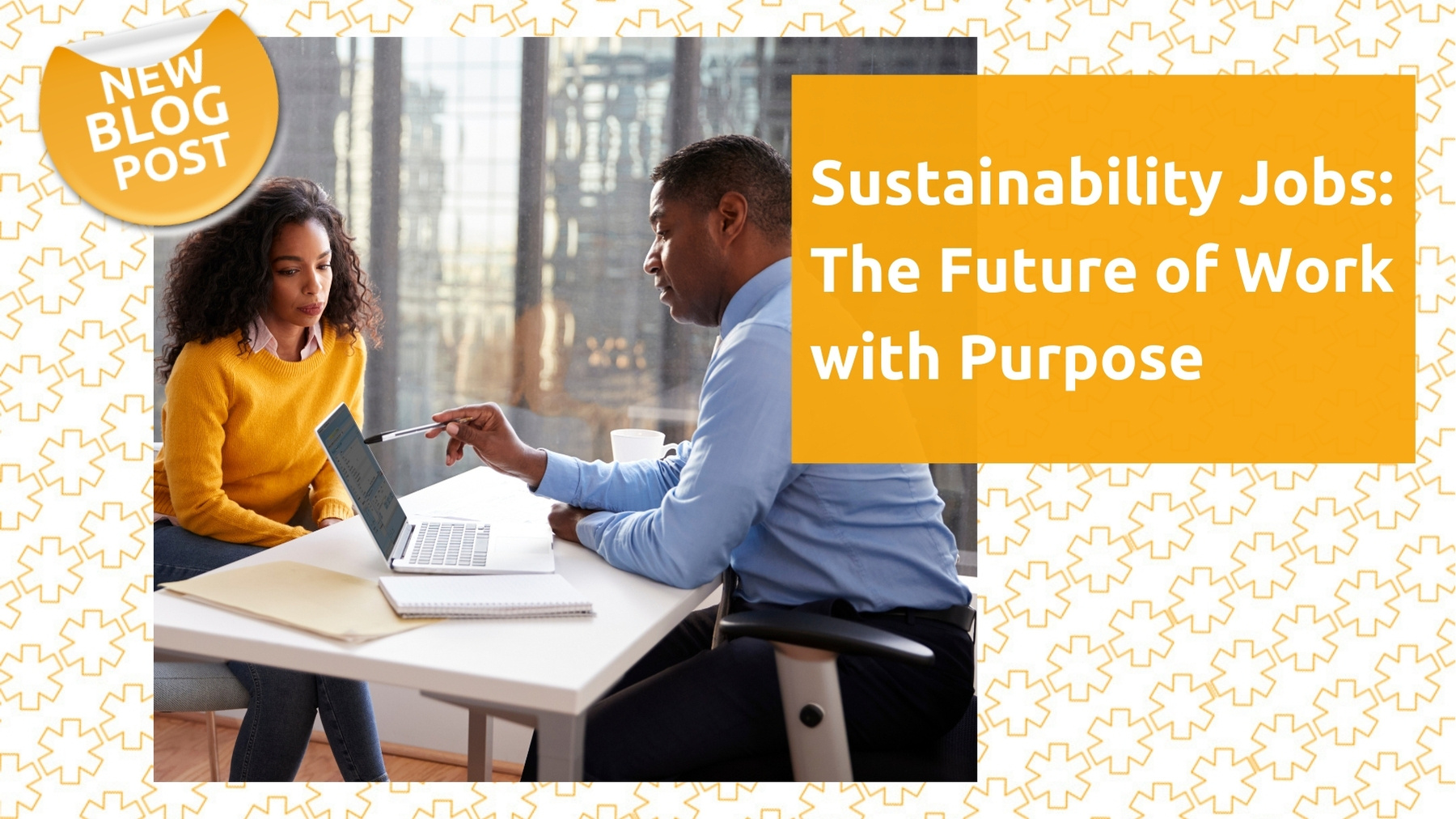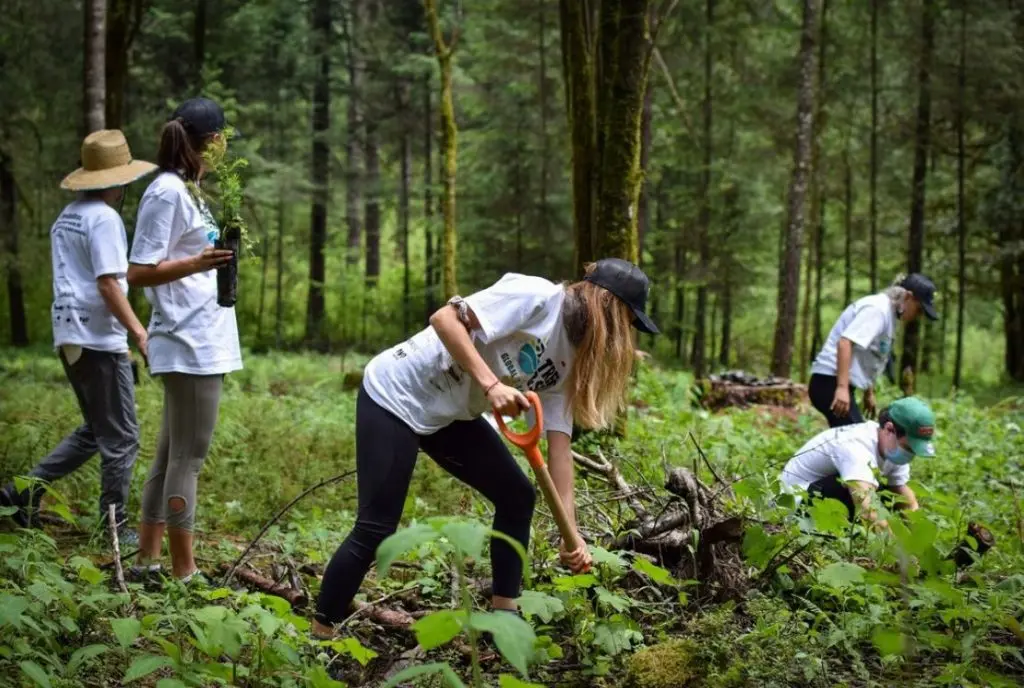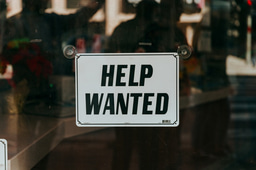Sustainability Jobs: The Future of Work with Purpose

No matter what you're studying to become - whether its an engineer, designer, business manager or anything else - there's a role for you in building a better, fairer future. Sustainability jobs are no longer limited to planting trees or installing solar panels, they're as diverse as the challenges they aim to solve.
What Are Sustainability Jobs, Really?
At its core, a sustainability job is any role that actively contributes to preserving resources, supporting communities, or creating long-term systems that don’t compromise the future. These roles span three interconnected pillars:
1. Environmental sustainability: Protecting natural ecosystems and reducing ecological footprints
2. Social sustainability: Promoting equity, inclusion, health, education, and community resilience
3. Economic sustainability: Developing systems that ensure long-term prosperity without exploitation or depletion

The Expanding Universe of Sustainability Careers
Gone are the days when “green jobs” were limited to recycling plants or forestry offices. Today, every sector - from finance to fashion - is hiring for sustainability.
- In Tech: Sustainability consultants and AI specialists help organisations track and reduce carbon emissions, develop climate models, and optimise renewable energy.
- In Fashion: Circular economy strategists and materials scientists design biodegradable fabrics and closed-loop production systems.
- In Urban Planning: Green architects and transportation analysts build cities that breathe - with cleaner air, smarter grids, and people-friendly spaces.
- In Social Impact: Roles in education, health, and community development embed social justice and well-being into the DNA of local and global policies.
What's more, even traditional roles are being reinvented. An accountant might now specialise in ESG reporting. A marketer could become a sustainability storyteller. A lawyer may focus on climate legislation or ethical supply chains. Which brings us to the big question...
Who is Hiring for These Roles?
Corporates are under pressure to act. Governments are legislating greener futures. Startups are building the tools to get us there. And nonprofits are driving grassroots change.
- Multinationals are embedding sustainability in their core strategies, hiring Chief Sustainability Officers and cross-functional ESG teams.
- Startups are innovating in waste management, clean tech, and ethical AI.
- Public institutions and NGOs offer roles in climate policy, community health, education access, and more.
Wondering where to start looking? Sustainability roles often pop up in places you might not expect. Across tech, fashion, finance, and more. Try searching for keywords like “impact,” “climate,” or “sustainability” on job platforms, or browse the careers pages of organisations you admire. Sometimes, just being curious and following people or projects you care about can open unexpected doors.

Which are the Skills that Matter?
Sustainability spans across a variety of sectors, job titles, and skill sets. To contribute meaningfully, you don't need to be a climate scientist. What you do need is the ability to connect your expertise with real-world impact. Key abilities include:
- Systems thinking: Seeing the big picture and long-term impact
- Data literacy: Measuring impact and making evidence-based decisions
- Interdisciplinary knowledge: Combining science, business, tech, and social understanding
- Empathy and ethics: Placing people and planet at the center of design
Soft skills like collaboration, resilience, and adaptability are just as essential, especially in a field that is evolving rapidly.
The Future Is Now, and It Needs You
Sustainability is the new standard for how the world works. As the climate crisis intensifies and inequality grows, the demand for people who can design just, inclusive, and regenerative systems is only rising.
Whether you're crunching numbers, writing code, running community programs, or shaping policy, your work can be part of the solution.
In short: sustainability jobs aren't the future of work. They are the work of the future.




Please sign in or register for FREE
If you are a registered user on WildHub, please sign in
This was a good read! What I loved the most is that the system thinking skill required for a sustainable world pretty much ask us to break the 'individualistic' mindset. We not only need to think of other people, but also the animals, bugs, and all the other things that were once thought to be less important than humans.
I hope this gets everyone thinking! Thank you so much for sharing!
Your very welcome @Fairuse Akter
Hope to continue to share more meaningful and insightful information from the Newsletters and Conservation Organizations I am subscribed to. Thank you again.
Thank you for sharing this, Loretta. The growing demand for sustainability professionals is generally a positive trend, and it is encouraging to see such jobs being advertised across most sectors.
However, companies are now also required to disclose ESG information so they hire sustainability professionals out of necessity and often simply to tick a box off their list. Sure, it isn't always the case but it does happen!
It is really important to look into the company's history & culture and ask as many Qs as possible when one applies for a "sustainability role" these days. Is the company really interested in measuring, assessing and improving their sustainability performance, or do they just want someone to write an annual report to publish on their website (but that nobody in the company even reads)? And also, what is the company really about? What are their ethical values?
Yes, there is growing interest (and need!) for sustainability professionals in all sectors, but it is not all genuine. My advice to anyone looking for a "sustainability role" is to do your research and really watch out for those companies that have no interest in making the world a better place. If you think about it, even Shell - one of the largest oil companies in the world AND one of the biggest climate polluters in the world - has sustainability officers among their staff. Now do we really think Shell cares about sustainability? We don't even need to peel off that many layers to see the hypocrisy in Shell having employees "developing and implementing strategies to reduce the company's environmental impact".
The thing is "sustainability" has become a buzzword that is largely misused. For whoever is just stepping into the job market, be extra cautious! Not everything that shines is gold.